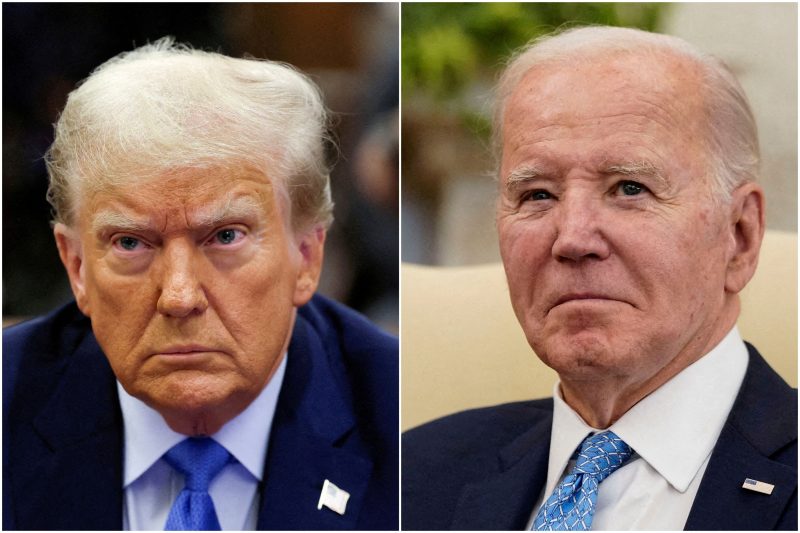In a recent statement, President Joe Biden has expressed his belief that the upcoming 2024 presidential race will be a binary choice between him and another candidate. However, many Americans are not viewing the race in such a simplistic manner. The political landscape is evolving, and numerous factors are playing a role in shaping the perspectives and choices of voters as they look ahead to the next presidential election.
One key aspect that challenges the idea of a strictly binary race is the growing disillusionment among voters with the two-party system. Independents and third-party supporters are a significant portion of the electorate who do not fit neatly into the traditional Democrat-Republican divide. These voters are increasingly seeking alternatives outside the established parties, driven by a desire for more diverse representation and solutions to the nation’s pressing issues.
Furthermore, generational shifts are also influencing the way individuals approach electoral politics. Younger voters, in particular, are demonstrating a willingness to look beyond party lines and are advocating for candidates who align with their values and priorities, regardless of party affiliation. This trend suggests that the 2024 race may see a more nuanced and multifaceted competition than a simple binary choice.
The impact of political polarization cannot be overlooked in discussions about the upcoming election. The divide between the left and right has deepened in recent years, with each camp becoming more entrenched in their ideologies. This polarization may push voters to consider factors beyond party loyalty, such as a candidate’s ability to unite the country and address the challenges facing all Americans.
Moreover, the consequences of the COVID-19 pandemic and its economic aftermath are likely to shape voter attitudes and priorities in the 2024 race. Issues such as healthcare, economic recovery, and social inequities are at the forefront of public consciousness, and voters may be inclined to support candidates who offer concrete plans to address these pressing concerns, regardless of their party affiliation.
In conclusion, while President Biden may view the 2024 presidential race as a binary contest between himself and another candidate, the reality is far more complex. Evolving voter attitudes, disillusionment with the traditional two-party system, generational shifts, political polarization, and the aftermath of the pandemic are all contributing to a more nuanced and diverse electoral landscape. As the country moves closer to the next election, it is essential for candidates and political observers to acknowledge and adapt to these changing dynamics in order to truly understand the choices that voters will make in 2024.

